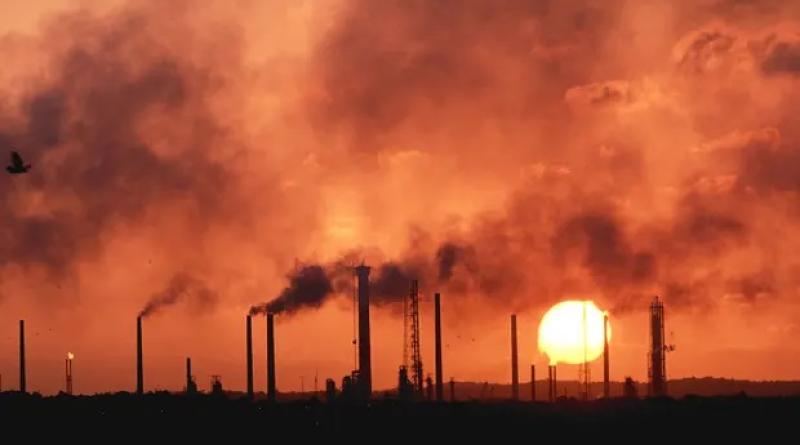$209bn a year is what fossil fuel firms owe in climate reparations. We want that paid

The truth is out, and it lays bare big oil’s plunder of the environment for commercial greed. Academics now estimate that the 21 top fossil fuel behemoths are liable for an estimated US$209bn annual reparation bill arising from their exploitation.
But what’s more scandalous is that the governments and private investors that have set off an existential timebomb may not be held accountable, despite compelling evidence that they were complicit in the turbocharged, steroidal race for industrial expansion and dominance.
For centuries now, Caribbeans of African descent have seen their demands for reparations arising from transatlantic chattel slavery blunted by former European colonial states on the basis that too much time has passed to establish social justice. However, that claim cannot be advanced in the face of an unfolding climate change apocalypse.
Earlier this week, the United Nations secretary general, António Guterres, visited Jamaica and rehashed his lament that developed states had failed to fulfil their pledge of $100bn in climate mitigation financing. But the fact that he took that same line in 2022 and 2021 is proof, to us, of the impotence of his secretary generalship. That places the burden on vulnerable developing states to lobby more vigorously as a bloc.
In conversation with me this week, Johnny Briceño, the prime minister of Belize, insisted that that major fossil fuel producers “have a moral and legal responsibility to the rest of countries suffering from climate change”, citing sea-level rise, more frequent and destructive hurricanes, warming waters and eroding coastlines as clear evidence of the dire consequences.
The effects across the Caribbean are clear and irrefutable. The climate emergency is not merely an academic argument posited by tree-huggers; it is having sweeping socioeconomic impacts on people’s quality of life. Along Jamaica’s south coast, leisure seekers and vendors at popular beaches such as Hellshire in the east and Alligator Pond farther west have seen the coastline recede by up to 30m over two or three decades. Besides spells of extreme heat, the island has been in the throes of a months-long drought that has had severe implications for water supply and caused agricultural prices to spiral.
Briceño believes that it would be logistically easier to extract climate justice through a special state-imposed tax in major developed countries that have fostered the greenhouse gas-emitting industries which have left a scorched-earth trail of destruction. And he is confident that corporate firms have the budgets to bear that cost.
But the nub of the problem is who pays, and who will collect?
There are several key issues that complicate the matter of climate reparations. Will the major fossil fuel producers based in the US and Europe yield to moral persuasion or other arm-twisting overtures? We cannot say. Those deep pockets, slicked with oil and cash, have for decades influenced government policy and will deploy the muscle of lobbyists to delay, or deny, a day of reckoning.
Will oil and gas producers in the Middle East and Russia view any climate reparations policy that affects their companies as western geopolitical mischief? Armed with data and balance sheets, big oil will also argue that economic development in Europe, the Americas, the Middle East and Asia could not have been achieved without environmental consequences, and that the world is a net beneficiary of those investments.
Even so, despite the difficulties and the apparent persuasiveness of those arguments, global powers must be pressed to take action now to right historical wrongs.
Big oil’s appetite for expansion, with new horizons emerging in states such as Guyana, means that its unchecked march may trample the safeguards necessary to maintain environmental harmony.
According to the Climate Accountability Institute, the global fossil fuel industry could be responsible for $23tn in lost GDP from climate impacts cumulatively by 2050. But Caribbean governments could also help themselves by imposing a reparation tax on major global oil, gas and coal investors operating in their territories. It can be done. It must be done. Failing to make polluters and despoilers pay their due would be a historic moral failure.
cover photo:An oil refinery at Willemstad, Curaçao. Photograph: blickwinkel/Alamy





